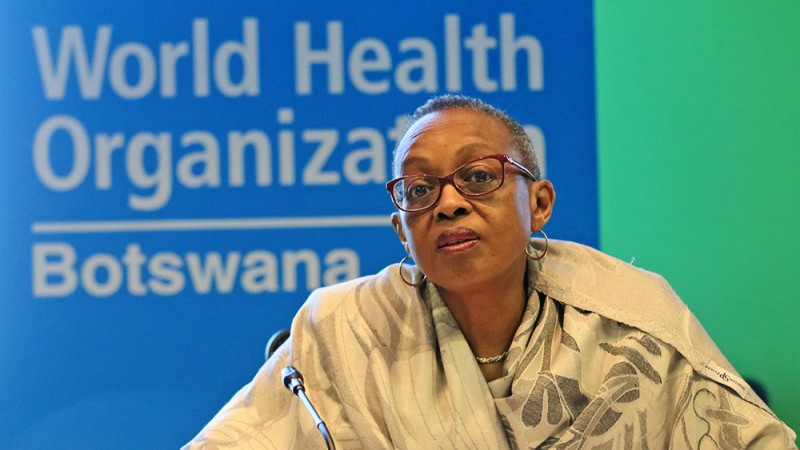WHO advises Botswana to bridge health care access gap
Baboki Kayawe | Thursday October 5, 2017 18:51


This approach, Moeti said, could improve the quality of health care rendered to these populations, since they are hard to reach through conventional healthcare means. However, she said effective collaborations with civil society organisations that have a direct working relationship with minority populations such as sex workers, drug users and the LGBT community could address the access issues bedeviling these groups.
Speaking at an official dinner hosted by the health ministry on Tuesday, Moeti said her remarks were motivated by a visit to the Botswana Family Welfare Association (BOFWA) where the struggles of minority groups in terms of health care access were plain to see.
“These key populations are very difficult to reach through conventional setups, so it is important for the ministry of health to have partnerships with civil societies that reach vulnerable groups that government cant reach,” she said.
Moreover, she said working with these partners was critical in achieving universal health.
She also commended the ministry’s new reforms that prioritise disease prevention as opposed to cure because it was cost effective to prevent as opposed to treatment. The approach, she said, must be applied to addressing Non-Communicable Diseases (NCDs) so that they do not dissipate into a public health epidemic like HIV/AIDS.
“The focus on prevention is great, and has to be applied to ensure that NCDs don’t take the place of HIV/AIDS,” Matshidiso.
She commended the country for the decision to hike the alcohol levy as a means to use price policies to curb excessive drinking as well as promote public health. Moeti also said strides have been made in the area of tobacco control and implementation of the Framework Convention of Tobacco Control.
“I have noted that smoking is now prohibited in a number of restaurants, that’s a step in the right direction,” she said.
She assured Botswana that WHO is open to advice in terms of policy and technical assistance to facilitate effective implementation of health reforms.
Dr Moeti, a public health veteran, with more than 35 years of national and international experience, is the first woman WHO regional director for Africa. She aims to build a responsive, effective and result-driven regional secretariat that can advance efforts towards universal health coverage and accelerate progress toward global development goals, while tackling emerging threats.
